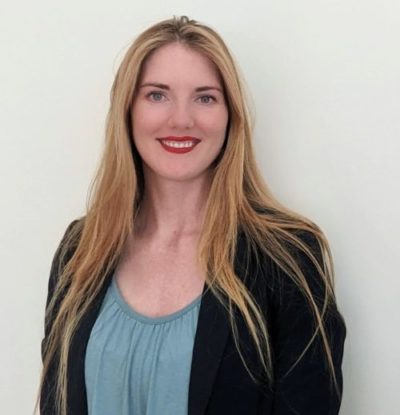
In this month’s newsletter, we would like to introduce PhD student, Amy Bromley from the College of Education, Psychology and Social Work.
Amy’s recently submitted thesis, “Creating meaningful change: A critical realist study of the relationship between psychological empowerment and systemic reform in the Australian child protection system” received outstanding results from the examiners.
We asked Amy to share what led her to a Phd and why it is important, the most enjoyable and hardest parts of a PhD journey and what the future holds.
What led you to undertake a PhD? What inspired or motivated you?
I have always wanted to undertake a PhD. Part of the allure was the aspect of independent study where I had control over what I was studying and how I wanted to study it. Aside from personal enjoyment, I also wanted to situate myself where I could influence macro practice. As a social worker, I have seen how restrictive systems limit the effectiveness of frontline practitioners. As much as I tried to help people in my practice, there were too many barriers for my work to feel sustainable or rewarding. I decided that I wanted to learn more and progress to roles where I could better influence systems. Nearly every problem our society faces is socially constructed and therefore within our control to change. By understanding this bigger picture, I hope to have a significant influence on the lives of children and families in South Australia and beyond.
![]()
What is the topic of your PhD and why is it important to you?
My PhD examined how change happens within child protection systems. I first became interested in the topic when I was working in child protection in Queensland. The system underwent a large reform after an inquiry. Despite all the plans we spoke about at work, very little actually changed. I heard my colleagues say that there was no reason to do things differently or that we were already doing the things the inquiry recommended.
I disagreed and saw many opportunities for growth. I often think back to those days and consider how much money was spent trying to reform the system and whether it was effective. I became fascinated with learning about how systems, especially large systems, change and how I could facilitate that change. We know a lot about what our systems should look like to keep children safe – what we struggle with is actually putting that knowledge into practice.
What has been one of the most enjoyable parts of the journey?
The most enjoyable aspects came later in my journey, when I was involved in teaching and working as a research assistant. I loved the diversity and no longer felt as though my entire life was focused on the thesis. I also met more people and formed wonderful relationships. Through these experiences, I began to think about life after my PhD and what I wanted from my career. For the first time, I felt that I was part of Flinders and not just an individual undertaking a lonely journey.
What has been one of the hardest parts of the journey?
The hardest part of the journey has been balancing home, work, and study life. As I did not have a scholarship, I had to work to support myself throughout my study. This was not only physically and mentally draining, but I also missed out on many opportunities. I would see training or networking events that I could not attend because of scheduling conflicts. When I first started studying, I thought the focus was on producing a thesis. I now realise that the experiences available during candidature are vital to becoming a researcher, and I needed to work on myself and not only my thesis.
![]()
What are your future goals and plans? / Where do you see your career heading in the future?
I am at a crossroads in deciding my next steps. I would love to remain with Flinders as I feel I have built a home here. I am also exploring opportunities in industry where I could take my knowledge and use it to directly help systems change. Even during my candidature, I received a contract to develop training based on my research and this has opened up many other possibilities for the future. Ultimately, I feel that I will be best suited as an academic but I am not sure of the best path to get there. I have spoken to many mentors and supervisors at Flinders who have been immensely helpful in providing advice and support. Right now, I feel blessed at the many opportunities I have available and will wait to see what happens in the new year. My passion is in helping children and families, and I welcome any role where I am able to do that.

